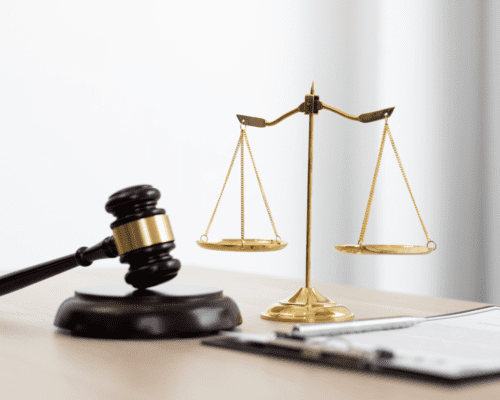Civil Litigation in California Courts: A Step-by-Step Guide

If someone has harmed you or damaged or taken away your property without permission, you may be able to solve your dispute using civil litigation. When you are thinking about filing a lawsuit against a person, a business, or any other legal entity, it’s a good idea to speak with an attorney first. Your attorney will explain the legal process and advise you about your chances of prevailing in court.
Filing a lawsuit is a complicated process that involves rules, procedures, and deadlines. You aren’t legally required to hire an attorney, but your chances of prevailing in a lawsuit are much greater when you do.
What Is Civil Litigation?
Civil litigation is a legal dispute where someone seeks monetary compensation (damages) for the harm they have suffered and/or attempts to require another party to perform specific actions. The plaintiff in a lawsuit is the party who initiates a civil lawsuit, and the defendant is the party who is being sued.
An example of a civil lawsuit where the plaintiff is seeking monetary damages is when someone who was injured in an automobile crash sues the negligent driver who caused the accident. In this case, the plaintiff may seek monetary damages to cover their medical costs in addition to other expenses, such as occupational therapy and time missed from work.
An example of civil litigation that seeks to get someone to perform a specific action is a municipality that files a lawsuit attempting to get a business to remove or alter a billboard that violates a local ordinance.
An example of civil litigation that seeks both monetary damages and specific actions on the part of the defendant is a lawsuit against a factory owner whose business is polluting a neighboring property. In this case, plaintiffs may seek damages for harm caused by the factory and request that the factory change its production methods.
Examples of disputes that may be settled by civil litigation include:
- Contract disputes
- Theft
- Embezzlement
- Slander and libel
- Property disputes
- Property damage
- Breach of warranty
- Product liability
- Discrimination
- Professional malpractice
- Negligent or malicious behavior that causes physical, emotional, or financial harm
The Steps in Civil Litigation
If the total damages you seek amount to less than $10,000, then it may be a good idea to file your case in small claims court. This option is faster, less complicated, and less expensive. For larger disputes, you will want to seek the services of an experienced trial attorney.
If you are suing someone to resolve a contract dispute, the contract may require mandatory mediation or arbitration. Check with an attorney to determine if this prevents you from filing a lawsuit.
There are strict rules, deadlines, and procedures for civil lawsuits in California that are spelled out in the California Code of Civil Procedure and the
California Rules of Court. Every case is different, but these steps are typically involved in a lawsuit:
- The plaintiff files the complaint. This is a legal document containing allegations against the defendant. The complaint includes specific laws violated, facts that support the complaint, and a request for damages and/or changes in behavior to be made by the defendant.
- The complaint is served. The defendant must receive a copy of the complaint within 60 days of the filing. If the defendant cannot be located, the court may order the publication of the complaint.
- The defendant files a response that answers or denies the allegations. At this point, the defendant may request that the court dismiss unwarranted allegations.
- Discovery. This is the process of investigating the facts underlying a case. Both parties may request information from the other side. If a party fails to supply the requested information, a motion may be filed requesting the court to compel the information to be released.
- A motion of summary judgment may be filed by either side requesting the judge to determine if a party is entitled to win the case at this point as a matter of law.
- Negotiation. Most cases are settled by negotiation before going to trial.
- Trial. If the two sides cannot come to a negotiated settlement, the case will go to trial. The defendant has the option to choose whether a judge or a jury will decide the case. Both sides will present their evidence, and then a judgment will be made.
- Appeal. Either side may choose to appeal the decision. An appellate court may review the process and procedures to make sure the proceedings were fair and proper law was applied. If the case is appealed, the appellate court may affirm and uphold the decision, or they may reverse the decision and remand (return) it back to the lower court.
Do You Have a Dispute Involving Property Damage or Eminent Domain?
If someone damages your property or if the government takes your business or residence for an infrastructure project using eminent domain, you have the right to fair compensation.
John S. Peterson of Peterson Law Group PC has been winning these cases for over 42 years. John belongs to the Million Dollar Advocates Forum and has an AV rating from Martindale-Hubbell®, their highest honor. Our Irvine attorneys have been recognized for providing outstanding service to our clients by Best Lawyers and Super Lawyers.
Call (949) 955-0127 to schedule a consultation today. You aren’t going to find a better lawyer anywhere else.
Call To Reach Us For A Prompt Response
Los Angeles Office: (213) 236-9720
Irvine Office: (949) 955-0127